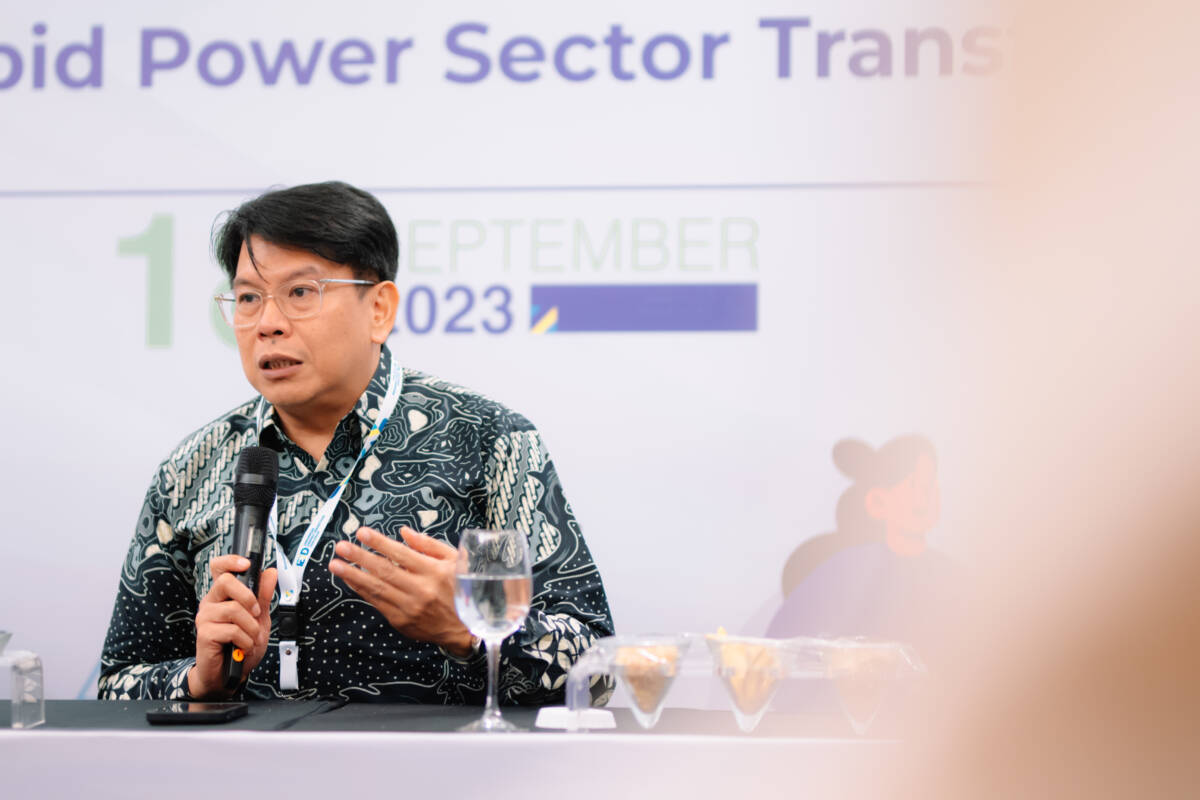
Jakarta, May 20, 2024– The government is again pushing for the power wheeling scheme to be included in the Draft New and Renewable Energy Bill (RUU EBET). This scheme will fulfill New and Renewable Energy (NRE) supply Articles 29A and 47A in network utilization cooperation (open access).
The power wheeling scheme is the joint use of the electricity network. In this scheme, power producers can distribute electricity directly to end users using transmission and distribution networks owned by license holders.
The Institute for Essential Services Reform (IESR) supports the inclusion of power wheeling in the EBET Bill. IESR believes that the implementation of power wheeling will create opportunities for developing more comprehensive renewable energy sources and utilization to support the energy transition towards net-zero emission (NZE) set by the government.
The existence of power wheeling will impact the growing supply and demand for renewable energy, particularly industrial electrification solutions, thus stimulating increased investment. Power wheeling also enhances communities’ and businesses’ access to renewable energy.
Fabby Tumiwa, Executive Director of IESR, mentioned that the reliance on demand and the procurement process from the State Electricity Company (PLN) presents a rapid challenge to developing renewable energy in Indonesia. The fact that PLN is the sole off-taker (energy buyer/provider) leads to suboptimal development of renewable energy resources. Tumiwa suggested that implementing a power wheeling scheme would encourage the participation of other state-owned and private electricity producers in the development of renewable energy, consequently accelerating the increase of Indonesia’s renewable energy mix.
Fabby assessed that concerns considering power wheeling as a form of electricity privatization are inappropriate. The transmission network was not sold to the private sector and is still owned by PLN as a state-owned enterprise. Instead, this scheme can optimize the utilization of PLN’s transmission network assets to increase PLN’s revenue from network rental fees, which can be used to strengthen PLN’s investment in the network.
IESR highlights several things that need to be considered when implementing power wheeling. First, this power wheeling scheme should be a mechanism that promotes renewable energy. Therefore, renewable power wheeling must be mentioned explicitly in the bill. Second, implementing power wheeling should not compromise the reliability of the electricity supply. Third, power wheeling must be regulated so as not to harm the network owner. Therefore, the tariff for using the shared electricity network (wheeling charge) must reflect the costs required to maintain and improve system reliability and ancillary services and cover investment costs for network reinforcement. Fourth, the government or regulator sets the tariff formula for using the shared electricity network, and fifth, to clarify the implementation, it is necessary to make more detailed derivative rules regarding power wheeling.
“The EBET Bill can require more detailed and technical power wheeling rules to be included in the implementing regulations of the law, in the form of Government Regulations (PP). Technical regulations and details will be regulated through ministerial regulations of ESDM,” Fabby explained.
Furthermore, Fabby revealed that implementing power wheeling can create a renewable energy market and positively impact industrial investment in Indonesia.
“The industry is currently focused on developing a sustainable approach. Many industry associations are advocating for this, including those participating in the RE100 initiative, which aims to transition to renewable energy by 2030. The power wheeling scheme will simplify the process for industries to access electricity from renewable sources, helping to reduce their carbon footprint, meet sustainability goals, and present a positive environmental image to customers. This is a positive step towards improving the investment climate in Indonesia,” added Fabby.
IESR hopes that the DPR and the government will consider broader national interests and benefits when establishing the power-wheeling clause in the New Energy Renewable Energy (EBET) Bill.

